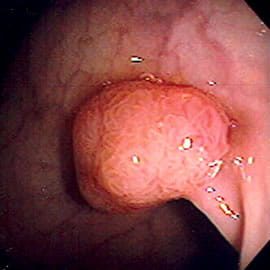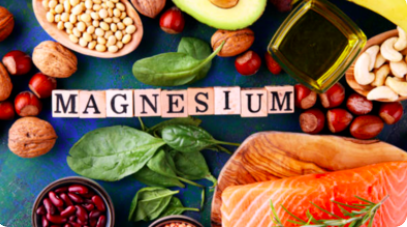Health
What Are the Causes of Colon Cancer?

What Are the Causes of Colon Cancer?
Colon cancer can occur in many ways and is common among older people, smokers, and people with a family history.
Symptoms may include abdominal pain, blood in the stool, weight loss, and diarrhea.
When colon cancer is suspected, a physician will perform a colonoscopy to check for cancer.
Symptoms of colon cancer

Although colon cancer is an extremely serious disease, it can be successfully treated if detected early.
Unfortunately, it is not always easy to detect the disease’s early symptoms, which are often a mystery to most people.
In many cases, the first sign of colon cancer will be a change in bowel habits. While these changes may be temporary, they are nevertheless indicative of colon cancer and should not be ignored.
A person suffering from these symptoms should consult a physician to find out the cause of their symptoms.
Typically, colon cancer develops as a result of the development of polyps. Regular screening will help identify whether polyps are present and prevent them from turning into cancer.
People who experience frequent blood in the stool may also be suffering from anemia, which is a lack of red blood cells in the blood.
This condition can make a person feel weak, pale, or tired all the time. Some people may also experience constipation and abdominal discomfort.
If a patient has these symptoms for more than a week, he or she should consult a physician.
Symptoms of colon cancer can be caused by other, less serious conditions, so it’s crucial to rule out other, less dangerous causes before seeking treatment.
Fortunately, most colorectal cancers can be treated early if they are detected in the early stages.
Risk factors

The risk of colon cancer can be increased by a number of factors. For instance, you may have a family history of the disease, which can increase your risk by up to 80 percent.
Some of these risk factors may be difficult to control, but some are within your power to influence.
Some are inherited, such as Lynch syndrome, while others can be caused by a variety of lifestyle factors.
Other risk factors include obesity and physical inactivity.
Being obese or overweight increases your risk for colon cancer, which is why it is important to reduce your weight.
Studies have shown that reducing your BMI and exercising regularly reduces your risk. Other lifestyle changes may also reduce your colon cancer risk.
For example, taking aspirin can lower your risk and prevent polyps from growing in your colon.
The type of diet you eat also affects your risk. A high-fat diet is associated with a higher risk for colon cancer than a diet high in fiber-rich foods.
Fiber-rich foods help cleanse the colon of cancer-forming substances.
You should also limit the amount of processed meat and red meat, which have been associated with increased colon cancer.
You should get screened for colon cancer if you have any of these risk factors.
Although colon cancer is not common in people without genetically-determined risk factors, screening is still recommended for people with these factors.
Treatment

There are several different treatments for colon cancer. Some involve chemo or surgery, and others do not.
Surgery is sometimes necessary if cancer has spread to other organs and is preventing the colon from being able to empty properly.
Another procedure is a colostomy, which involves cutting part of the colon off and attaching it to a skin opening.
Surgery is not usually a cure for colon cancer, but it can extend your life. The procedure involves cutting out the section of the colon that contains cancer, as well as any nearby lymph nodes.
A doctor then gives you chemotherapy to kill any remaining cancer cells. The chemotherapy usually lasts six months and is called adjuvant therapy.
CT scans can help determine whether cancer has spread to other parts of the body.
An x-ray machine and computer are connected to make detailed pictures of the inside of the body.
A dye may be injected into a vein or swallowed to help the organs show up more clearly.
In addition to x-rays, your doctor may order a blood test called a CEA assay to determine whether you have colon cancer.
Surgery for colon cancer may also involve removing the entire colon.
The surgeon will then create a stoma, an opening on the outside of the body, through which waste can pass.
This colostomy may not be permanent, depending on how the lower colon heals
If the entire lower colon is removed, however, the stoma may stay in place.
Questions People Ask:
People also inquire about the leading cause of colon cancer.
Lack of consistent physical activity A diet deficient in fruit and vegetables. A diet lacking in fiber and high in fat, or one rich in processed meats. Overweight and obesity.
What foods are associated with colon cancer?
Similarly to processed meats, processed grains can raise the chance of developing colon cancer. White bread and other foods made with refined grains can increase blood sugar levels, resulting in insulin resistance. This can increase your risk of colon and other cancers, such as kidney cancer.
Who is at the greatest risk for colon cancer?
Cancer of the colon can occur in young adults and adolescents, although the majority of colorectal malignancies occur in those over 50 years old. Men are diagnosed with colon cancer at an average age of 68, while women are diagnosed at an average age of 72. For rectal cancer, the median age for men and women is 63 years
What are the asymptomatic symptoms of colon cancer?
How to spot colorectal cancer’s quiet symptoms
Changes in bowel habits lasting longer than a few days, including diarrhea, constipation, and changes in stool consistency.
Blood in the feces, either bright red or dark red.
Constant tiredness.
Cramping, stomach pain, or bloating.
Abnormal weight loss
How do you prevent colon cancer?
Some studies suggest that increased physical activity, maintaining a healthy weight, limiting alcohol use, and avoiding tobacco may reduce the risk of colorectal cancer.
What destroys colon cancer cells
Chemotherapy is the use of chemicals to eliminate cancer cells. If the cancer is bigger or has spread to the lymph nodes, chemotherapy is commonly used following surgery for colon cancer. In this method, chemotherapy may eliminate any remaining cancer cells and lower the likelihood of cancer recurrence.
What constitutes the initial stage of colon cancer?
Early indications of colon cancer may include blood in the stool, difficulty defecating (long-lasting diarrhea or constipation), cramping, distension, or pain in the area of the gut, or a persistent decrease in stool size.
Is colon cancer curable?
When confined to the gut, colon cancer is a highly treatable and sometimes curable condition. Approximately fifty percent of people who have surgery are cured of their condition.
How is it possible to identify colon cancer in its early stages?
The most effective screening test now available for colorectal cancer is a colonoscopy. The only screening test that can detect a significant number of colorectal cancers is this one. The following is some information concerning this test that you need to be aware of: Your doctor will perform a colonoscopy on you so that he or she may look at the lining of your whole colon for any signs of polyps or tumors.
Can you survive colon cancer?
The survival rate is 91% when the cancer is detected at an early stage while it is still localized. 72% of patients will be alive after 5 years if the disease has spread to tissues or organs in the immediate area, as well as to regional lymph nodes. If the colon cancer has progressed to other parts of the body, there is a 14% chance of surviving over the course of five years.
Does drinking water with lemon cleanse the colon?
It is common knowledge that lemon contains potent antimicrobial capabilities. Drinking water with lemon first thing in the morning is a great way to keep your body healthy and free of infections. Pectin is found in great quantities in lemon, and this nutrient is known to do wonders for the health of your colon. Lemon is also known to be an effective detox agent.
Is eating bananas a smart way to prevent colon cancer?
Other high-fiber fruits like pears, apples, and bananas (which are excellent sources of magnesium) also promote good digestive and colon health and lower the risk of colon cancer. Pears, apples, and bananas are examples of these fruits.
Conclusion
Tell us anything you know about ” What Are the Causes of Colon Cancer?
Remember your health is wealth
Please, let us know your thoughts in the comments section.
Health
7 Fascinating Facts About Magnesium You Probably Didn’t Know

7 Fascinating Facts About Magnesium You Probably Didn’t Know
Magnesium is one of the most essential minerals for our health, yet many people are unaware of its significance.
This vital nutrient plays a crucial role in numerous bodily functions, from energy production to maintaining a healthy heart.
In this article, we will delve into seven intriguing facts about magnesium that may surprise you and help you appreciate its importance in your daily life.
What is Magnesium?
Magnesium is a naturally occurring mineral found in various foods and is vital for human health.
It is the fourth most abundant mineral in the body and is involved in over 300 biochemical reactions.
Magnesium contributes to nerve function, muscle contraction, blood sugar control, and blood pressure regulation.
It can be obtained from various dietary sources, including leafy greens, nuts, seeds, whole grains, and legumes.
1. Magnesium is Involved in Energy Production
Did you know that magnesium is essential for converting food into energy? This mineral plays a critical role in the activation of ATP (adenosine triphosphate), the energy currency of our cells.
Without sufficient magnesium, your body struggles to produce energy effectively, which can lead to feelings of fatigue and weakness.
How Does It Work?
ATP production occurs in the mitochondria, often referred to as the powerhouse of the cell.
Magnesium helps activate enzymes involved in this energy production process, ensuring that your body has enough energy to perform daily activities.
2. A Key Player in Bone Health
Magnesium is vital for maintaining strong and healthy bones. Approximately 60% of the magnesium in your body is stored in your bones.
It contributes to bone density and strength by regulating calcium levels in the body, which is crucial for bone formation.
The Calcium Connection
Calcium is often touted as the primary mineral for bone health, but magnesium plays an equally important role.
An imbalance of these two minerals can lead to bone-related issues such as osteoporosis.
Ensuring adequate magnesium intake is essential for maintaining optimal bone health.
3. Supports Heart Health
Magnesium is a crucial mineral for cardiovascular health. It helps maintain normal heart rhythms and can reduce the risk of heart disease.
Adequate magnesium levels are associated with lower blood pressure and reduced risk of heart attacks.
Regulation of Blood Pressure
Magnesium helps relax blood vessels, which can lead to lower blood pressure.
Studies have shown that individuals with higher magnesium intake tend to have better cardiovascular health. Including magnesium-rich foods in your diet can be an effective strategy for supporting heart health.
4. Magnesium and Mental Health
Emerging research suggests a strong link between magnesium levels and mental health.
Magnesium plays a role in regulating neurotransmitters, which are essential for mood stabilization.
Low magnesium levels have been associated with an increased risk of depression and anxiety.
Cognitive Function
Magnesium may also enhance cognitive function. Studies have indicated that adequate magnesium intake can improve memory and learning abilities.
This mineral is essential for brain health, making it vital for overall mental well-being.
5. Magnesium Deficiency is Common
Despite its importance, magnesium deficiency is surprisingly common.
Factors such as poor diet, chronic stress, and certain medical conditions can lead to low magnesium levels.
Symptoms of magnesium deficiency can include muscle cramps, fatigue, and irritability.
Risk Factors for Deficiency
Certain populations are at a higher risk for magnesium deficiency, including the elderly, those with gastrointestinal diseases, and individuals who consume a diet low in whole foods.
It’s essential to recognize the signs of deficiency and consider increasing your magnesium intake through diet or supplements if necessary.
6. Natural Relaxant
Magnesium is often referred to as a natural relaxant due to its calming effects on the nervous system.
It helps regulate cortisol levels (the stress hormone) and promotes relaxation, making it beneficial for those dealing with anxiety and stress.
Improving Sleep Quality
In addition to its relaxing properties, magnesium can improve sleep quality.
Many people find that magnesium supplements help them fall asleep faster and stay asleep longer, making it a popular choice for those struggling with insomnia.
7. Magnesium in Sports Performance
Athletes and active individuals often benefit from magnesium’s role in muscle function and recovery.
Magnesium helps prevent muscle cramps and can aid in post-exercise recovery by reducing inflammation and promoting relaxation.
Enhancing Athletic Performance
Research has shown that adequate magnesium levels can enhance athletic performance.
It is involved in muscle contraction and relaxation, making it essential for peak performance during exercise.
Conclusion
Magnesium is a powerhouse mineral that plays an essential role in various bodily functions. From supporting energy production to promoting heart health and mental well-being, its importance cannot be overstated.
Ensuring adequate magnesium intake through a balanced diet rich in whole foods can significantly enhance your overall health and quality of life.
If you suspect you may be deficient in magnesium, consider consulting with a healthcare provider to assess your levels and discuss dietary changes or supplements that may be beneficial.
FAQs about Magnesium
1. What are the best dietary sources of magnesium?
The best sources of magnesium include leafy green vegetables (like spinach), nuts (especially almonds and cashews), seeds (such as pumpkin seeds), whole grains (like brown rice and quinoa), and legumes (like beans and lentils).
2. How much magnesium do I need daily?
The recommended daily intake of magnesium varies by age and gender. Generally, adult men should aim for about 400-420 mg per day, while adult women should aim for about 310-320 mg.
3. Can I take magnesium supplements?
Yes, magnesium supplements are available and can be beneficial, especially for individuals who may not get enough from their diet. However, it’s essential to consult with a healthcare provider before starting any supplement regimen.
4. What are the symptoms of magnesium deficiency?
Symptoms of magnesium deficiency can include muscle cramps, fatigue, weakness, irritability, and irregular heart rhythms. If you experience these symptoms, consult a healthcare professional.
5. Is it possible to get too much magnesium?
Yes, while magnesium from food sources is generally safe, excessive supplementation can lead to toxicity, causing symptoms like diarrhea, nausea, and abdominal cramping. Always consult a healthcare provider before increasing your magnesium intake significantly.
References:
Health
Whooping Cough: Understanding Its Resurgence and Prevention

Health
The Power of Beans: Why This Superfood is a Nutritional Treasure
-

 Trending Stories1 year ago
Trending Stories1 year agoCDC: 1 in 4 Americans Still COVID-Free by End of 2022
-

 Health5 years ago
Health5 years agoMeghan Trainor Shares Motivational New Song ‘Blink’
-

 Health6 months ago
Health6 months agoHow Do Pawpaw Seeds Support Cardiovascular Health?
-

 Health2 years ago
Health2 years agoHow Long Does Monkey Pox Last Before It Surfaces in the Body?
-

 Health3 years ago
Health3 years agoWhat Causes Swollen Body? Understanding Edema and its Triggers
-

 Health3 years ago
Health3 years agoNutrition and the Importance of a Fitness Program – 3 Things to Know
-

 Health3 years ago
Health3 years ago5 Weird Reasons Why Pimples Disappear After Marriage
-

 Health2 years ago
Health2 years agoHealth Benefits Of Pawpaw Seed? 7 Things To Know






